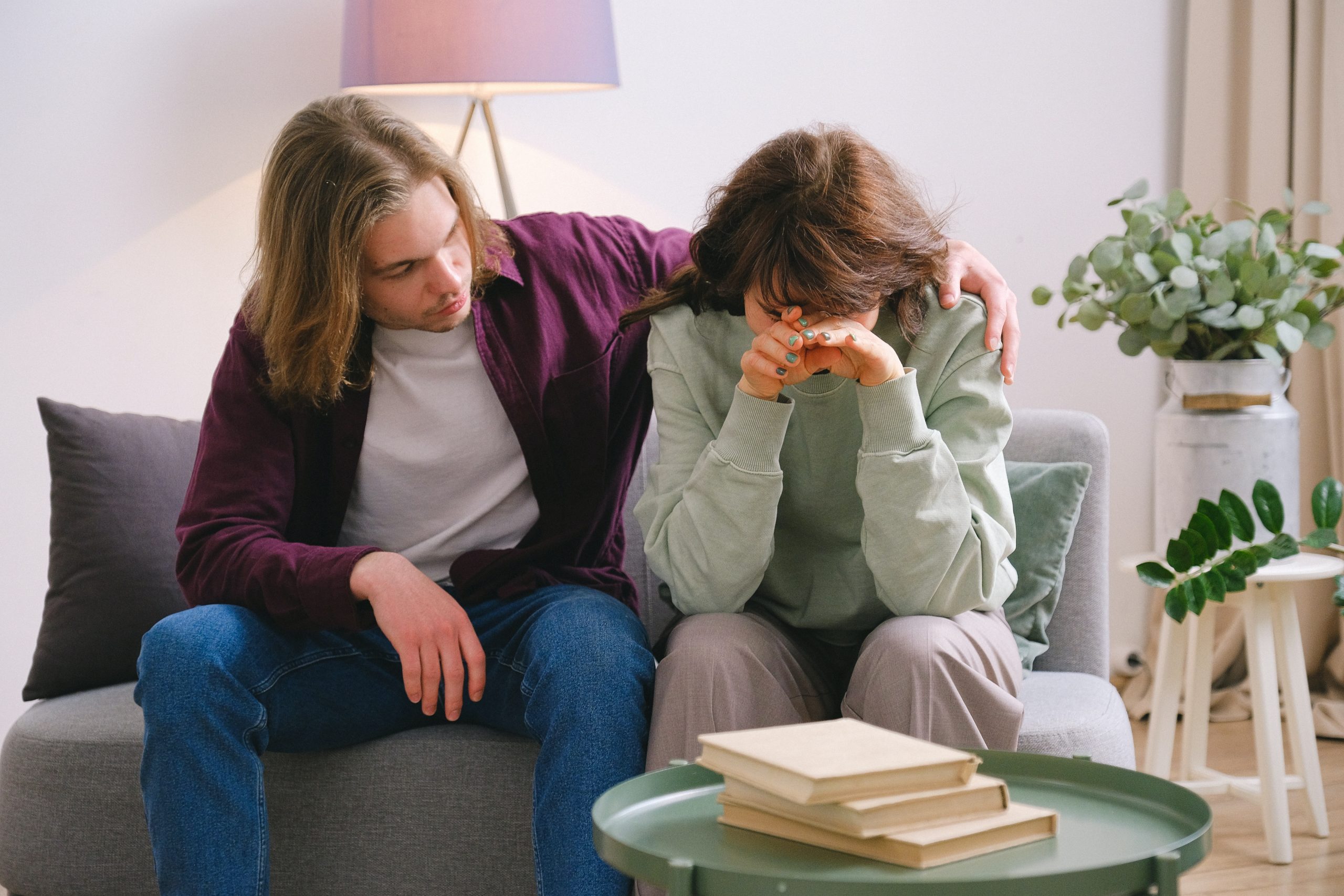What Is Disenfranchised Grief and How Can You Cope?
Disenfranchised grief refers to a specific type of grief that doesn’t feel safe or appropriate to publicly acknowledge. The added burden of this emotional pain can complicate an already challenging grieving process, and it can make people feel even more alone with their feelings.
Examples of Disenfranchised Grief
If you feel like you need to suppress or hide how you feel about a particular loss, you might be experiencing disenfranchised grief. This grief can affect individuals, but it can also impact entire cultures. When a community, for instance, faces a loss, everyone in that group may feel the impact of that experience. However, greater society might not acknowledge what happened.
Pet loss: The death of a beloved pet can be extremely traumatic. However, people may be quick to dismiss a pet dying with generic platitudes like, They lived a long life, or, You can always get another sweet dog!
Abortion: Whether you had an abortion recently or many years ago, some people find that this loss coincides with a hidden sorrow and ambiguous wonder about what could have been.
Perinatal losses: Research shows that about 650,000 women in the US experience miscarriages, stillbirths, or early infant deaths each year. However, many families find that talking about these losses feels largely taboo. As a result, parents often feel alone in their grieving struggles.
Death by overdose: Because drug use remains so stigmatized, overdose deaths are not always openly acknowledged or validated. This can be heartbreaking for family members grieving a loved one.
Death by suicide: Suicide is also highly stigmatized. You may experience mixed emotions about this kind of loss (such as anger or guilt) that complicate your grieving process.
Loss of something that feels shameful (ending an affair): Many people grieve the loss of someone others don’t know about- or who they are no longer in a relationship with. A member of the LGBTQIA+ community who is not open about their sexual orientation may grieve losing a same-sex partner. A wife may significantly grieve the death of her ex-spouse, even if they haven’t been on speaking terms in years.
Losses that are conventionally considered positive: You may experience disenfranchised grief after ending a bad relationship, leaving a toxic job, or when your child leaves home. While these experiences may seem positive, there are grief reactions associated with what you are fundamentally losing.
Non-death losses: Medical issues can trigger a sense of loss, particularly when it comes to conditions like cancer, dementia, or other forms of terminal illness. You can experience this grief if these conditions happen to you or to someone you love.
How to Cope With Disenfranchised Grief
All types of grief healing are difficult, but disenfranchised grief can be particularly challenging. Additional fear, shame, or loneliness can exacerbate the ordinary distress associated with experiencing a loss. Likewise, even if you try to seek support, other people may not be as supportive or understanding as you need them to be.
Here are some ways to manage this complicated grief and recognize the significant loss you endured:
Acknowledge Your Own Grief
Although this may seem obvious, naming how you feel and attuning yourself to your emotional reactions is one of the most important steps in any grieving process.
Consider which emotions you are feeling and allow yourself to be with your sadness, fear, or anger. Don’t assume you need to dig deep and understand why you’re having these feelings. For now, simply accept them as part of the process of disenfranchised grief.
Seek Social Support
Your immediate family members may not understand how or why you’re experiencing grief right now. Disenfranchised grievers need to surround themselves with people who get it.
Try to avoid the perils of social isolation, even if being alone feels tempting. Whether that’s joining specific support groups or turning online for connection, look for people who can validate your feelings and honor your unique healing process.
Practice Self-Compassion
The cost of hidden grief can be steep. And if grief stays in the shadows, the burden of it will likely take a significant toll on your mental health.
Self-compassion is one of the most important coping strategies for disenfranchised grief. You need to be kind to yourself and practice self-care. Regardless of social norms or societal expectations about how you’re supposed to feel, you have every right to grieve in ways that feel congruent with your values.
Grief Therapy for Disenfranchised Grief
All grief is valid, but the disenfranchised griever sometimes needs permission to honor their grieving experience and mourn their loss safely.
Grief therapy offers a safe environment to express your feelings and receive unconditional support. This is a relationship that’s entirely focused on your needs and well-being. Many people find that grief therapy allows them to tap into deeper emotions and harness more meaning moving forward.
I am here to support you during this vulnerable time in your life. Whether you’re grieving the loss of a relationship, a death that feels taboo, or something more intangible, I am here to hold space. Contact me today to schedule a consultation.

